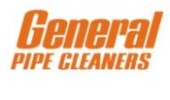
The EnerQuality Housing Innovation Forum, which was held recently in Richmond Hill, ON, opened the door to the future of homebuilding in a low-carbon economy. Presentations were led by industry professionals, and attendees were guided through the negative effects of climate change while demonstrating the need for environmental innovation in residential and commercial buildings.
The theme, “Next Gen. Next 10” refers to the next generation of codes and programs that are coming in 2017. Sessions ranged from Housing Innovation: The drivers of change and opportunity in homebuilding, to Cracking the Code: The 2017 Ontario Building Code and voluntary program.
A keynote conversation featured speakers Dr. Dianne Saxe, environmental commissioner of Ontario, and Peter Gilgan, founder and CEO of Mattamy Homes, who discussed the environmental dangers of carbon. They demonstrated through casual discussion and simple brainstorming, that many eco-friendly possibilities lay ahead if people climb aboard the eco-friendly train.
“We may be at a point in time when we, our industry, are about to embark on a commitment to make real change,” Gilgan said. He emphasized that we are moving in the right direction with Net-Zero Energy (NZE) homes and amending/implementing codes, but people would benefit from a new system, that perhaps has yet to be thought of.
“Why can’t we have a system that every time a house changes owners, it has to meet a certain energy code?” asked Gilgan. He explained that a small idea like this, even with necessary exceptions for historical homes for example, would have the ability to create great benefits if taken on by the masses.
Like Gilgan, Dr. Saxe emphasized that there needs to be change on both the mitigation and adoption of energy efficient technologies. She attended the 2015 United Nations Climate Change Conference in Paris and said that she returned home horrified. “People do not understand how fast it’s [climate change] coming and how quickly it is going to get bad.”
A panel discussion entitled Zeroing In: Developing a Business Case for Net-Zero Energy (NZE) housing featured three speakers and was moderated by Sonja Winkelmann, director of NZE housing at the Canadian Home Builders’ Association (CHBA).
Winkelmann opened the discussion with some positive updates from a recent CHBA homebuyers study, which revealed that homebuyers now classify energy efficient appliances, high efficiency windows and an overall efficient home as ‘must-haves’ when house hunting. Additionally, Winkelmann explained that, “Oxford researchers forecast that solar power could supply 20 per cent of the world’s energy by 2027,” which demonstrates that NZE homes are on the horizon and advancements in this technology are being seen “all over the world.”
The panellists were in agreement that the price of NZE housing needs to come down, which would make it more accessible to homeowners. Winkelmann quoted the cost to be $65,000 to get to net zero.
Alison Minato, vice president of sustainability with the Minto Group explained that while these costs come down, “a short term goal for net-zero energy is to make a commitment to green labeling, while also expanding net zero energy command offerings.”
Jennifer Weatherston, director of innovation for Reid’s Heritage Homes added that modifying the way people in this industry talk about NZE to homeowners is crucial. She believes that a great deal of effort needs to be put into changing the language so that it is “more informative and less of a sales pitch.” To this point, Winkelmann asked attendees if the term net-zero is even the best term for this technology. There is concern that it does not evoke a positive response, and NZE may undergo some rebranding in the near future for this reason.
There are other challenges to overcome. Panellist Chris Buligan, manager of operations at Cricket Solar, believes that space – or lack there of, is something that the industry needs to overcome specifically in regard to solar power. “Being able to fit enough solar panels on a roof can be challenging – many need more panels but [roof] space restricts,” said Buligan.
Winkelmann closed the session by discussing a NZE boot-camp that aims to address these issues and more for those interested in exploring the subject further.
Evening events that followed included a dinner, an EQ awards reception and gala for attendees, as well as an after party celebrating the award winners. For more information on the NZE boot-camp that is being held in Kelowna, BC on May 2, visit, www.chba.ca.




